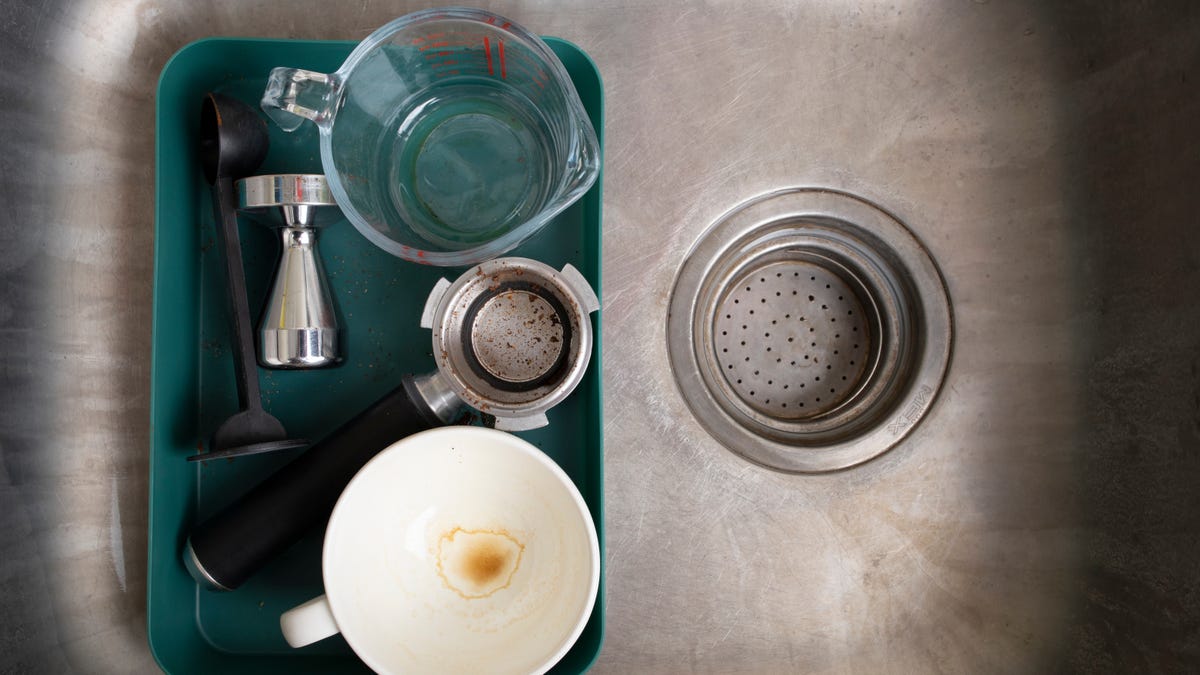A Nutritionist Says to Eat These 10 Anti-Inflammatory Foods for Breakfast
Rise and dine. The post A Nutritionist Says to Eat These 10 Anti-Inflammatory Foods for Breakfast appeared first on Camille Styles.
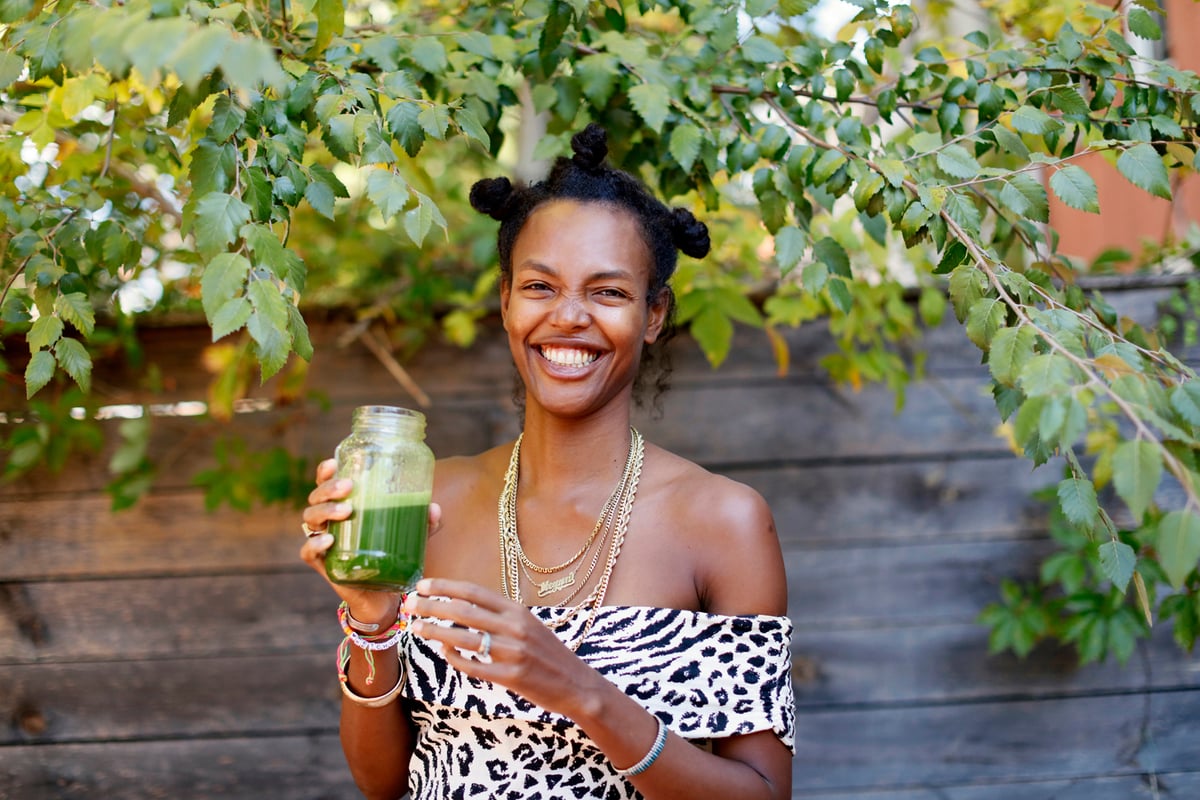
Rise and shine! It’s time to kickstart your morning with a dose of TLC. Anti-inflammatory TLC, to be exact. Say hello to a breakfast that blends taste, satisfaction, and inflammation-fighting ingredients—a winning trifecta for vibrant health. Despite the temptation to scarf down a bowl of cereal at your desk (or grab a burnt piece of toast on your way out the door!), a balanced breakfast makes all the difference. It has the power to quell inflammation, provide stable energy, and make you feel good. With that in mind, we’re sharing delicious and practical anti-inflammatory breakfasts. Plus, learn why inflammation is a double-edged sword.
Featured image from our interview with Megan O’Neill by Belathée Photography.
Inflammation: Finding the Sweet Spot
First and foremost, what is inflammation? In essence, it’s the body’s innate response to threats and injuries. In the right amounts, inflammation heals and protects—but it’s all about striking a balance. Too little, and the body struggles to fend off invaders. Too much, and our immune system goes rogue, damaging healthy tissues and spawning chronic ailments. Not the goal! We want (read: need) inflammation, but we also don’t want it to spiral out of control. Ultimately, finding the sweet spot is paramount—for longevity and warding off a host of diseases.
1 of 14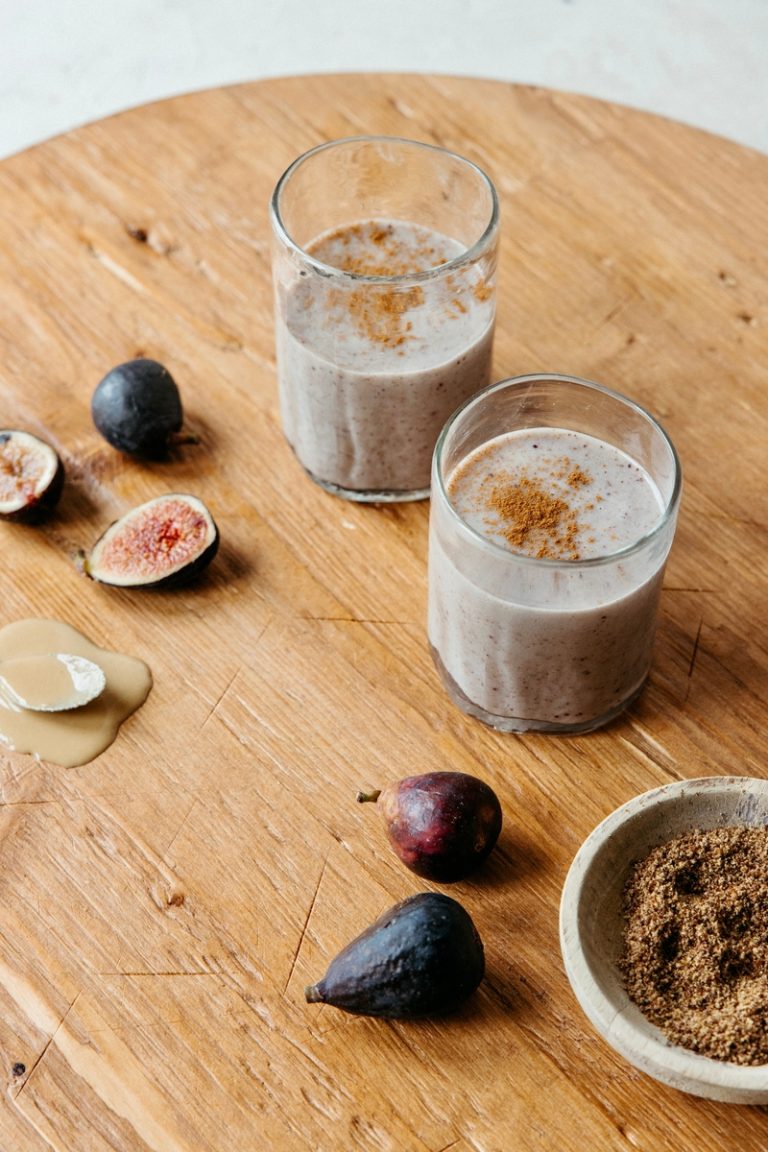
A Thoughtful Approach to Diet and Lifestyle
So, how can you find inflammation’s sweet spot? Ultimately, it’s two-pronged. Maintain a thoughtful approach to both diet and lifestyle. Here are key strategies to keep in mind:
Eat an anti-inflammatory diet
No surprise here! Prioritize whole, nutrient-dense foods—such as low-glycemic fruits, fiber-rich vegetables, whole grains, lean proteins, and healthy fats. Speaking of healthy fats, load up on omega-3 fatty acids. A few favorites: salmon, flaxseeds, chia seeds, and walnuts. Limit or avoid ultra-processed foods and sugary snacks.
Spice it up
Certain spices, like turmeric and ginger, contain potent anti-inflammatory compounds. Add these spices into your meals. In turn, reap their inflammation-fighting properties.
Stay hydrated
Hydration helps flush out toxins and supports the body’s natural healing processes. Drink up!
Keep blood sugar in check
The more erratic your blood sugar, the higher the likelihood of increasing inflammation in your body. Follow our glucose-friendly food guide. Additionally, consider wearing a CGM.
Prioritize sleep and manage stress
Aim for 7-9 hours of quality sleep each night. Sleep is crucial for cellular repair and reducing inflammation. Do your best to establish a consistent sleep routine. Furthermore, because chronic stress can trigger inflammation, practice daily stress-reduction techniques (yoga, time in nature, etc.).
Engage in regular physical activity
Moderate, regular exercise helps regulate inflammation. Aim for a mix of aerobic activity, strength training, and flexibility exercises. Walking counts, too! Movement, combined with proper nutrition, also helps keep visceral fat in check. (Too much body fat is known to increase inflammation.)
Limit alcohol and avoid smoking
Excessive alcohol consumption is pro-inflammatory. If you choose to drink, do so in moderation! Additionally, smoking is a known pro-inflammatory factor. Quitting can have profound positive effects on reducing inflammation (and of course, improving overall health).
2 of 14
The Best Anti-Inflammatory Foods
Honing in on diet, let’s talk anti-inflammatory foods. In many ways, an anti-inflammatory diet isn’t so much a diet per se. Rather, it’s an emphasis on foods with natural anti-inflammatory properties. In turn, these help balance the immune system’s response. A few examples? Think: colorful fruits and vegetables, whole grains, lean proteins, healthy fats, and spices.
Fruits. Berries (blueberries, strawberries, and raspberries), cherries, oranges, apples, grapes, pineapple, mangoes, and pomegranates. These are rich in antioxidants and phytochemicals to help combat inflammation. Vegetables. Spinach, kale, Swiss chard, broccoli, cauliflower, Brussels sprouts, bell peppers, tomatoes, carrots, tomatoes, and sweet potatoes. Packed with vitamins, minerals, and antioxidants, veggies support a healthy inflammatory response. Whole grains. Brown rice, quinoa, oats, whole wheat, barley, and bulgur. Lean proteins. Fatty fish (salmon, mackerel, sardines), skinless poultry, lean cuts of meat, non-GMO tofu, tempeh, and legumes (beans, lentils, chickpeas). Healthy fats. Almonds, walnuts, flaxseeds, chia seeds, hemp seeds, olive oil, avocado, ghee, and coconut. These provide heart-healthy fats, antioxidants, and fiber to reduce inflammation. Spices and herbs. Turmeric, ginger, garlic, cinnamon, rosemary, oregano, and basil. These are rich in anti-inflammatory compounds. Probiotic-rich ingredients. Yogurt, kefir, sauerkraut, kimchi, and miso. Beverages. Green tea, herbal teas, and water infused with citrus or cucumber. 3 of 14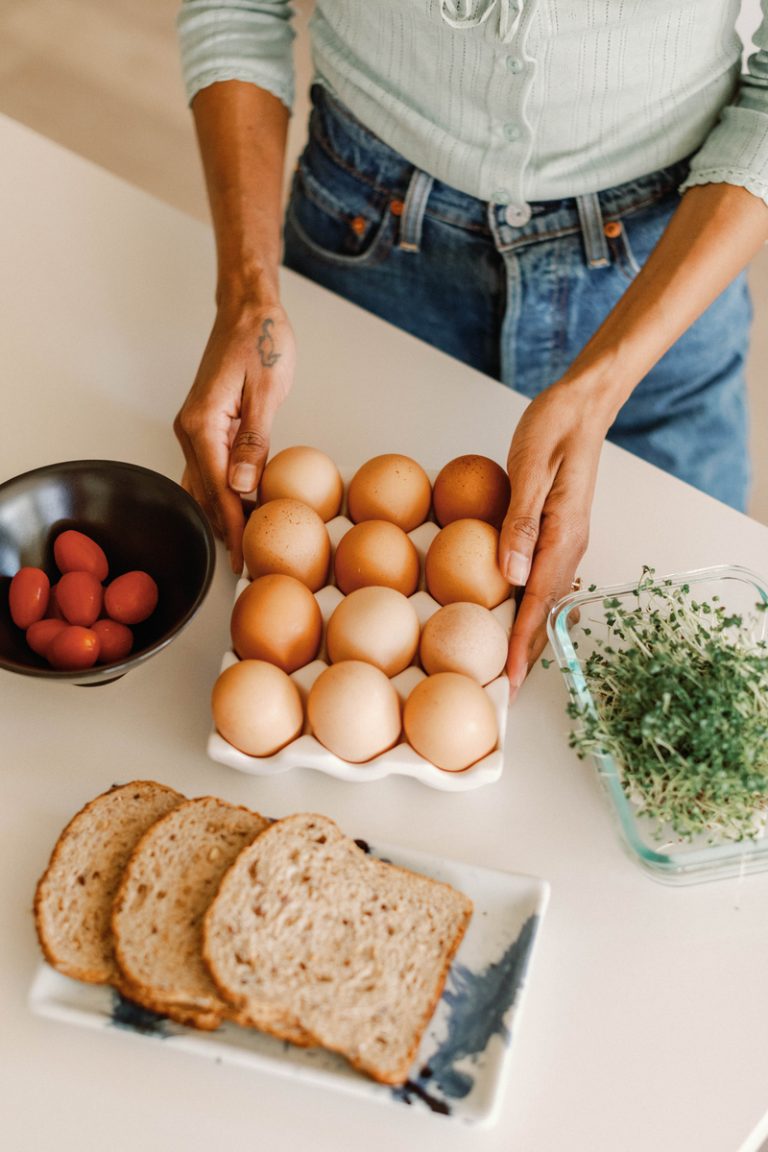
The Benefits of Eating an Anti-Inflammatory Breakfast
As mentioned, chronic inflammation is linked to long-term health issues (heart disease, diabetes, obesity, etc.). Fortunately, an anti-inflammatory breakfast moves the needle in the opposite direction! It sets you up to mitigate inflammation—or in the very least, lower it. Additionally, anti-inflammatory meals help balance blood sugar levels. In turn, this prevents rapid glucose spikes and crashes which reduces overall inflammation.
Furthermore, many of these foods are also good for gut health. And a healthy gut microbiome is essential for overall immune function. Lastly, certain anti-inflammatory foods—such as fatty fish—are beneficial for cognitive function. A nourishing breakfast gives your brain the nutrients it needs to function optimally.
10 Anti-Inflammatory Breakfast Ideas
In need of inspo? We have you covered. Add these anti-inflammatory breakfasts to your weekly repertoire.
4 of 14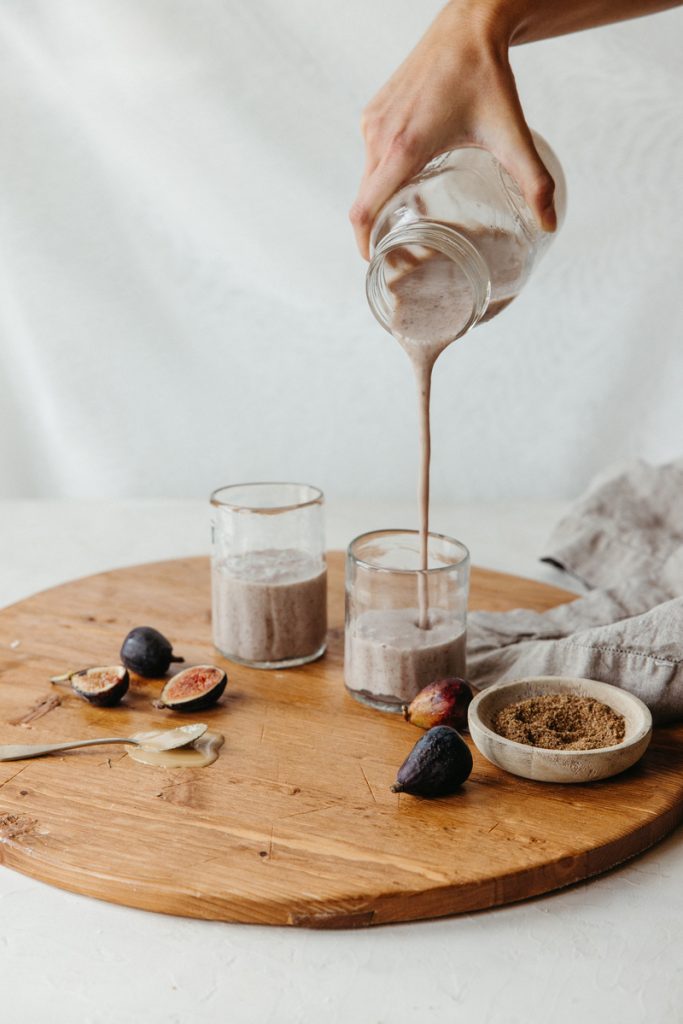
Fig Smoothie
Loaded with ginger, tahini, flax, and figs, this smoothie is an anti-inflammatory refresher. This fall-ified smoothie is also rich in hormone-balancing ingredients to keep you satiated and energized.
5 of 14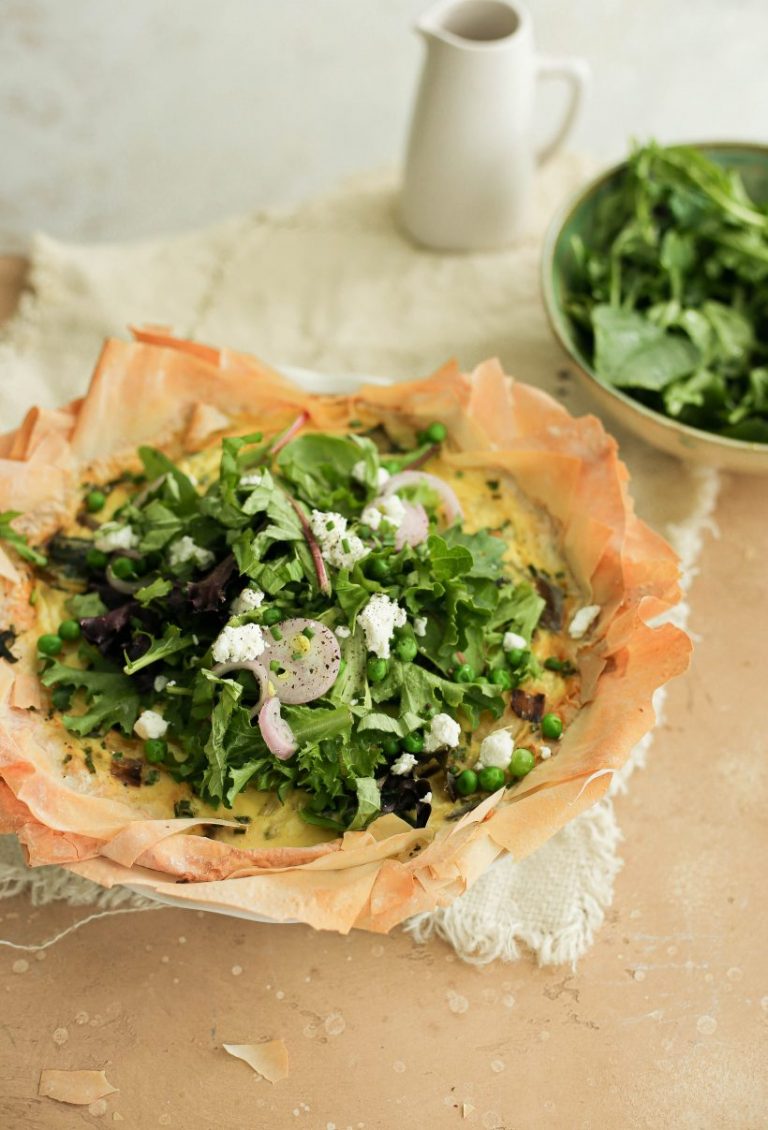
Vegetarian Quiche
This fiber-rich vegetarian quiche is packed with the good stuff: the best of spring produce (specifically, three types of onions), garlic, and a heavy handful of leafy greens. Meal prep this for a nourishing yet fancy weekday breakfast.
6 of 14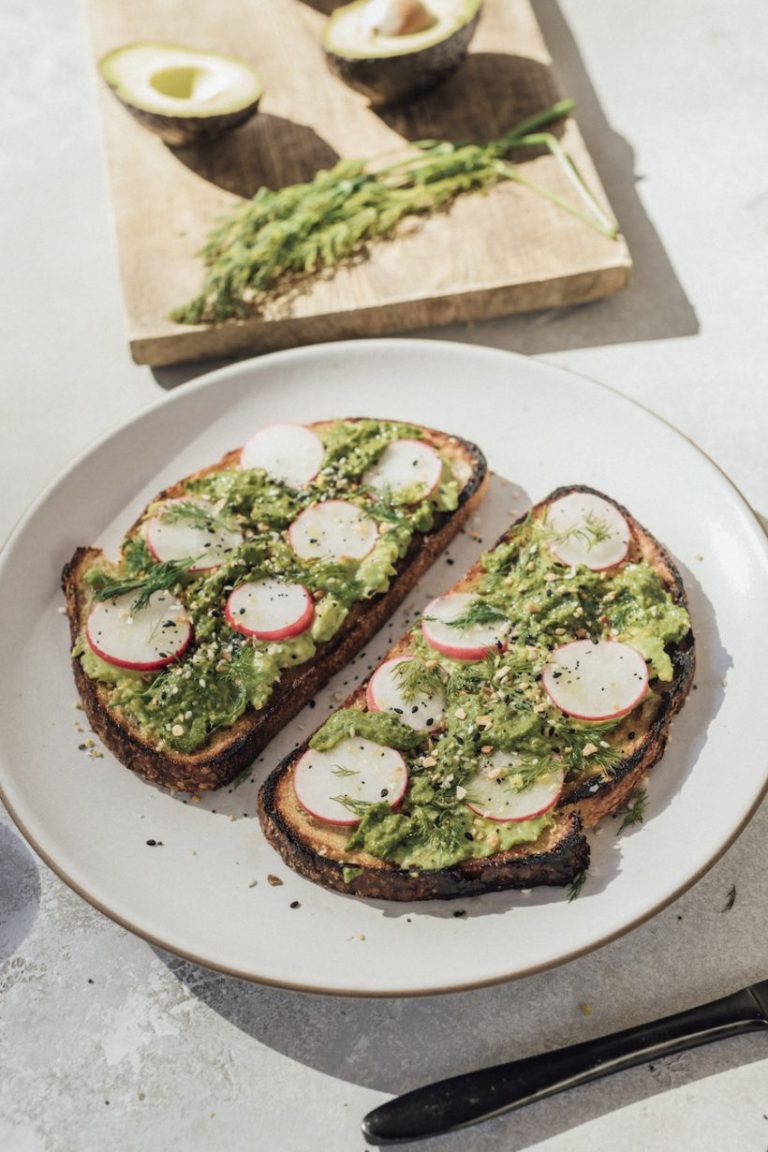
Avocado Toast With Kale Pesto
Dark leafy greens? Check. Heart-healthy fats? Check. Flavor and crunch? Check. This avocado toast is practically a form of self-care. Elevated with veggies and herbs, it takes your standard avo toast to the next level. Make the kale pesto ahead of time, and this comes together in minutes. For a gut-friendly option, choose sourdough (or gluten-free) bread.
7 of 14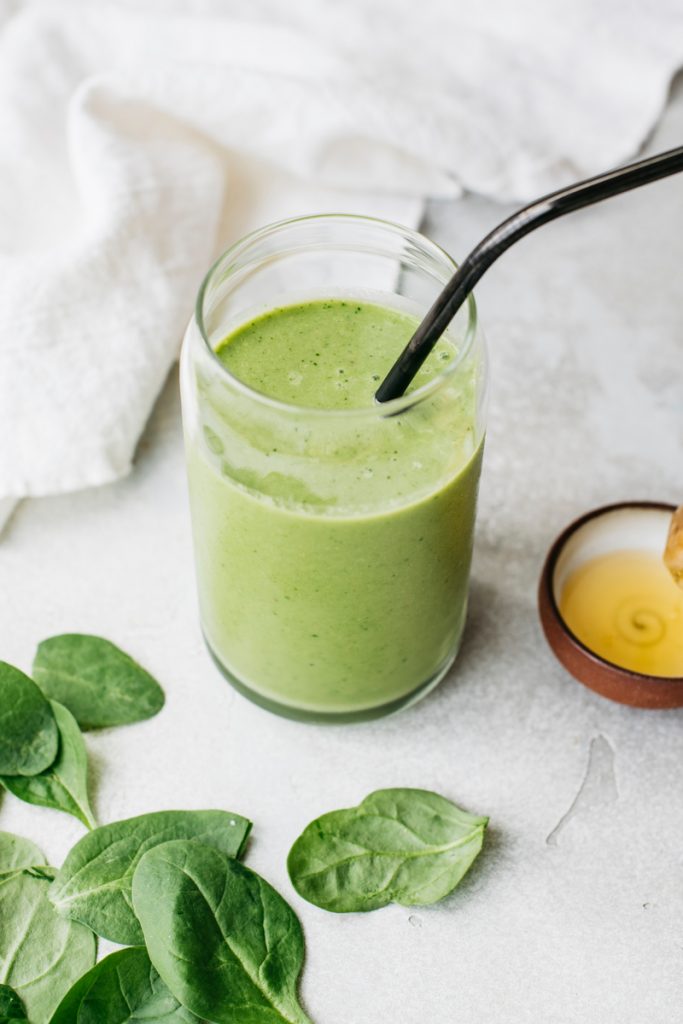
Healthy Green Smoothie
This vibrant smoothie balances blood sugar and nourishes the body on a cellular level. The secret ingredient? Cauliflower! Adding a boost of fiber, antioxidants, and vitamin C, this cruciferous veggie supports everything from digestion to immune function.
8 of 14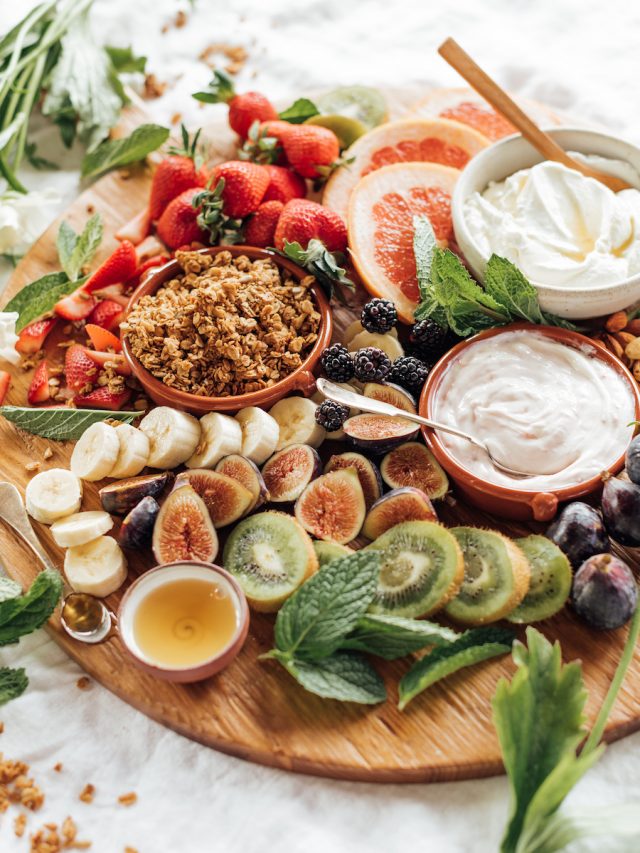
Breakfast Grazing Board
An everything-but-the-kitchen-sink kind of breakfast, a grazing board suits all tastes and preferences (including picky eaters). Add antioxidant-rich fruits (blackberries, strawberries, blueberries, etc.) along with Greek yogurt or cottage cheese—for protein and probiotics—and you’re good to go. Bonus points: add a handful of walnuts for a source of healthy fats.
9 of 14
Smoked Salmon Flatbread
Yes, this savory brunch totally passes as a satisfying and delicious weekday breakfast. Rich in omega-3 fatty acids, energizing carbs, and fresh herbs, eating an anti-inflammatory breakfast never tasted so divine. In a rush? Swap the flatbread for a thick slice of sourdough or fiber-rich crackers.
10 of 14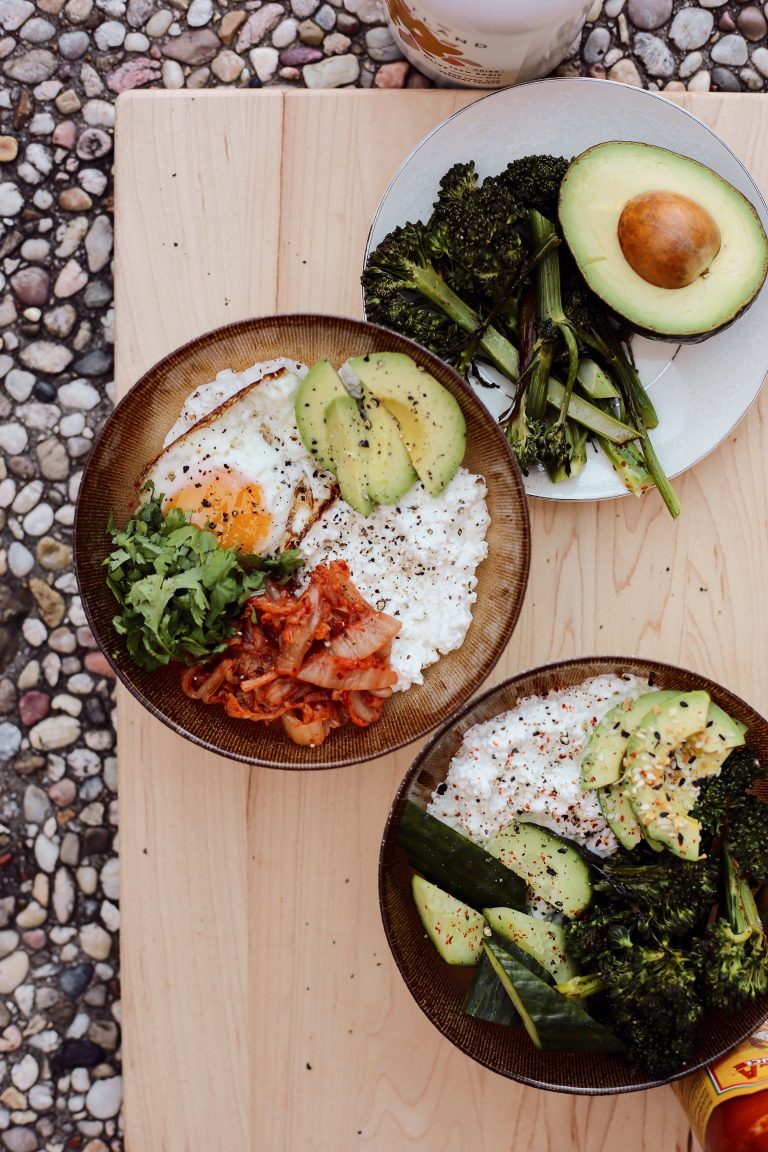
Savory Cottage Cheese Bowls
Cottage cheese is having a moment this summer. And truthfully, we’re here for it. These bowls are layered with probiotic-rich dairy, satiating protein, anti-inflammatory greens, and kimchi for gut health. Balanced, flavorful, and easy to throw together, these bowls are a weekly staple.
11 of 14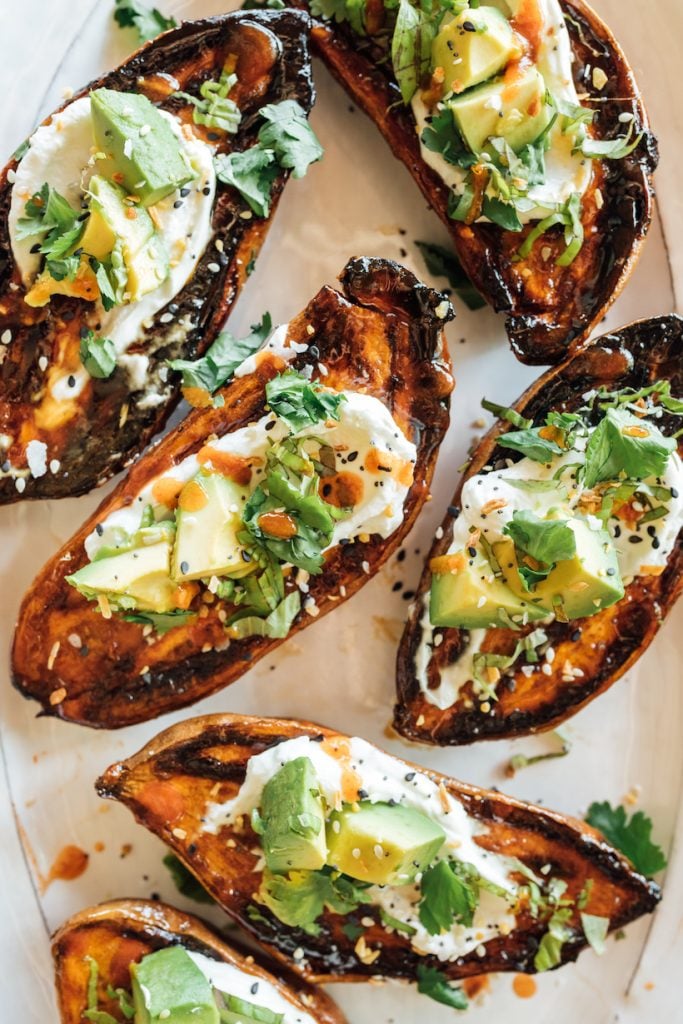
Crispy Roasted Sweet Potatoes
Perfectly caramelized, these sweet potatoes are out of this world. And they make for the perfect breakfast base! Top with yogurt, avocado, herbs, or a poached egg with hot sauce. They’re light yet rich, energizing, and anti-inflammatory. The best of all worlds. Meal prep a batch of these potatoes for a quick breakfast all week.
12 of 14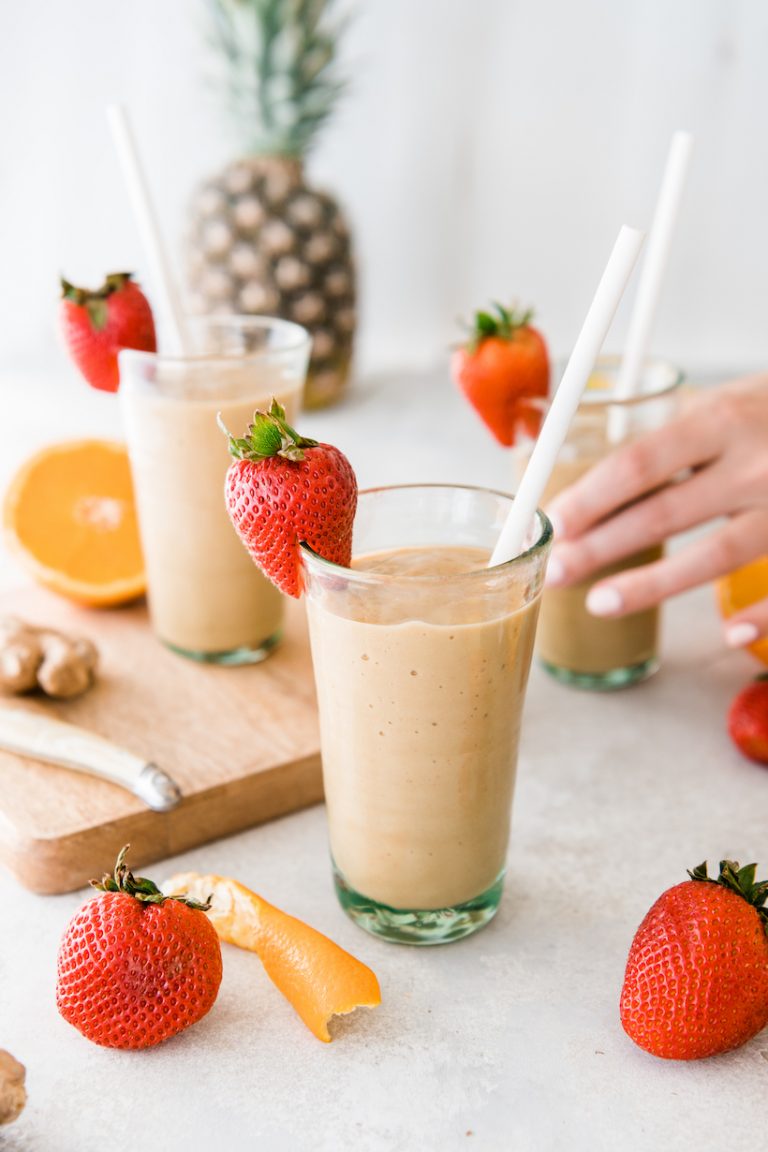
Tropical Pineapple Ginger Smoothie
The kind of breakfast that transports you to a remote tropical island, this smoothie packs an anti-inflammatory punch. Creamy avocado meets spicy ginger, vitamin C-rich orange juice, and sweet pineapple in this irresistible smoothie. Your kids will love it, too!
13 of 14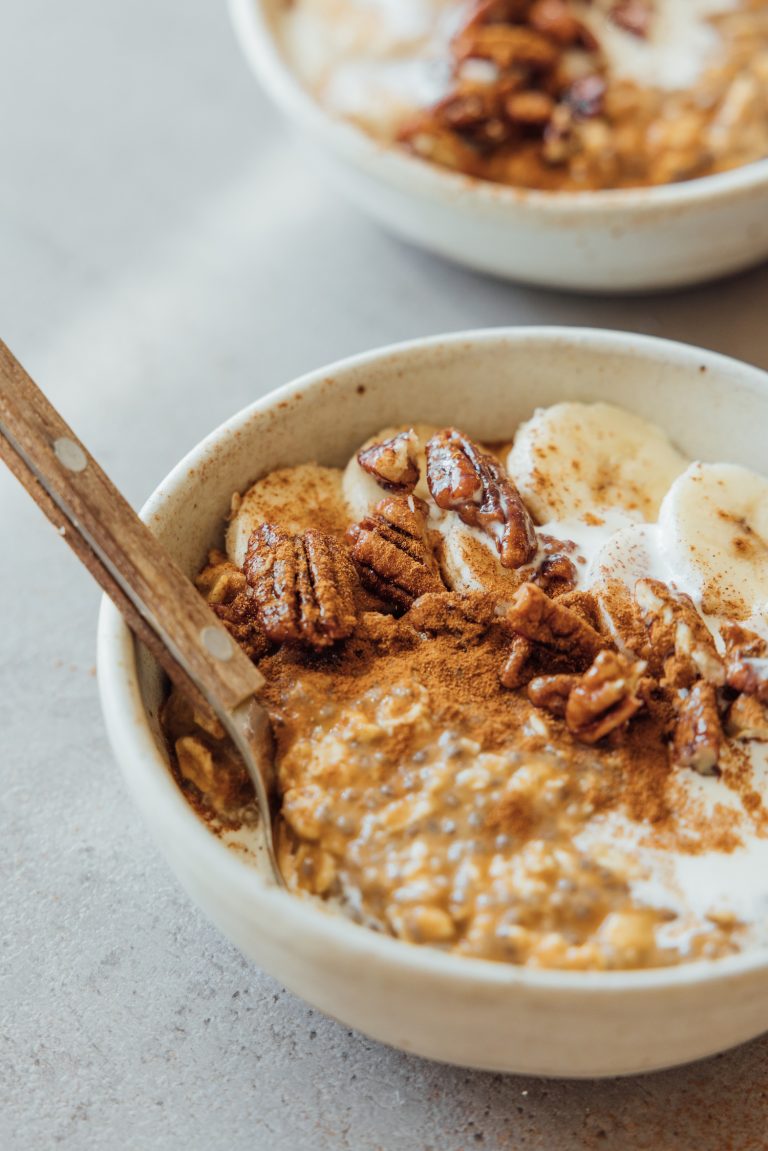
Creamy Pumpkin Overnight Oats
Last but not least, whip up a batch of these pumpkin overnight oats. Loaded with goodness, pumpkin contains beta-carotene, which is a powerful antioxidant (and a precursor to vitamin A). Plus, it’s a good source of vitamins C and E, as well as minerals like potassium. These nutrients have anti-inflammatory effects and can help support overall immune function. Pumpkin is also a source of dietary fiber, supporting optimal gut health.

 Troov
Troov 







